Tips for Building Muscle Mass While on HIV Treatment

HIV and Your Weight
Certain medicines used for HIV can make people pack on pounds more than they normally would. The medicines also can change your metabolism. If this happens to you, it may help to know it’s normal and not just you. Other HIV medicines might help with this, so ask your doctor if weight gain is a side effect you should watch for. Added weight from HIV treatment as you get older can increase your risk for obesity, heart disease, and other health problems.
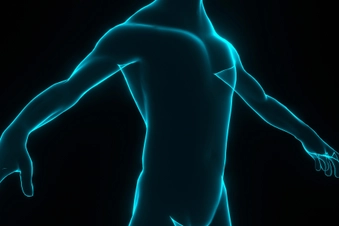
HIV and Your Muscle Mass
Sometimes, people with HIV also lose healthy muscle. This doesn’t happen to everyone to the same extent. People with HIV who lose more muscle tend not to do as well. Muscle loss often happens when your HIV infection is getting worse faster. If you’re taking your HIV medicines as directed, you may not lose muscle any faster than other people do as they age. But you can also take steps to keep and build muscle while avoiding unhealthy extra pounds.
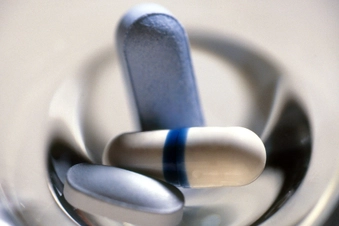
Stick to Your HIV Treatment Plan
The most important step you can take for your health is to make sure you stick to your HIV treatment plan. You’ll take your antiretroviral therapy (ART) daily. It’s best to start taking medicine for your HIV as soon as you find out you have it. There’s still no cure for HIV. But with today’s medicines, you can live a long, healthy, and happy life. You can keep your body strong, too.
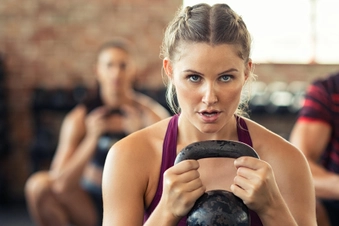
HIV and Exercise
Exercise is a great way to stay healthy, and that doesn’t change when you have HIV. Routine exercise should include a combo of resistance, or strength training and aerobic exercise to keep a healthy weight and build muscle. Is it safe? You bet! Evidence shows that regular physical activity and exercise are safe and effective when you’re being treated for HIV.
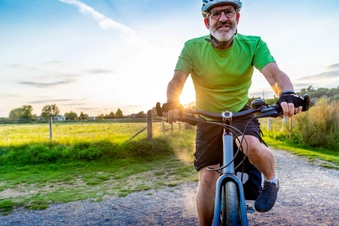
How Much Exercise Do I Need?
Your exercise needs are the same, whether you have HIV or not. You can follow the same guidelines for any healthy adult. The latest recommendations call for at least 150 minutes (2½ hours) each week of moderate-intensity exercise that gets your heart rate up. Examples include:
- Biking
- Walking fast
- Dancing
- Swimming
- Running
You should also do exercises that work and build your muscles at least twice a week. Try:
- Lifting weights
- Pushups
- Planks
- Squats

More Exercise Benefits
In addition to improving your physical health and lowering health risks, exercise comes with many other benefits for anyone, including people with HIV. When you have HIV, exercise can help with your:
- Mood
- Mental focus
- Stress
- Sleep

HIV and Your Diet
To fuel a healthy body and build muscle, it’s important to eat well. This is true for anyone but can be even more important when you have HIV. A healthy diet can help you:
- Stay strong
- Keep your energy levels up
- Boost your immune system

Tips for Healthy Eating
You’ll want to eat foods that give you all the essential nutrients and energy to stick to a healthy weight without losing muscle. Eat a variety of foods from all the food groups. Protein is especially important for your muscles. Healthy carbs and healthy fat also give you energy. Avoid too much:
- Fat
- Sugar
- Salt
- Alcohol
Talk to your doctor first if you plan to make any big changes to your diet. A dietitian also may help if you’re not sure what’s good to eat.
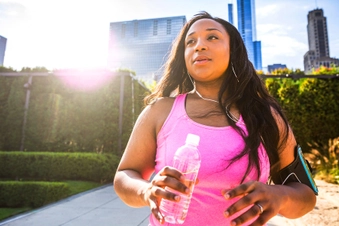
Don’t Overdo It
If you try to exercise too hard, too long, or in ways you aren’t used to without rest, it can backfire. You may find yourself worn out without the payoff you’d expect. The best way to start a new routine is slowly. Work your way up, little by little. Think about your current fitness level and your goals. Ask your doctor if there’s an exercise program they’d recommend. And let them know about any injuries or concerns that come up.
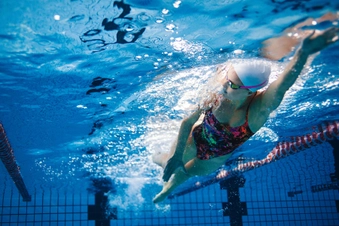
Mix It Up
Cross-training is the best way to keep from injuring or overusing any single group of muscles. That means you should try a variety of activities, not just one. Pick activities that target different parts of your body, and change it up. Give yourself time to recover between exercise sessions.

Do What You Love
You’re more likely to stick with a new muscle-building exercise routine if you do activities you actually enjoy. It also helps to find other people to exercise with. Ask friends or family to join you. Or find new friends through a support group or local exercise group. Being physically active doesn’t have to be a chore. See what you can do to make it a fun and rewarding part of your day.
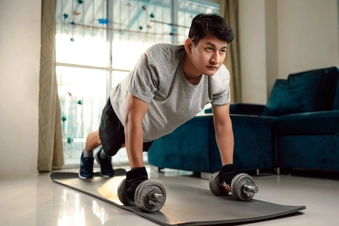
Building Muscle on a Budget
Keep in mind that you don’t need a fancy gym membership or any special equipment to get going with a healthy exercise routine. Put on a supportive pair of shoes and head out the door for a brisk walk or jog. Or get started with a strengthening routine – including pushups, squats, and planks – with nothing more than your own body, a wall, and a chair. You can find plenty of free exercise videos and routines online.

Where to Get Help
If you don’t have a regular doctor or are struggling to get basic treatment, including guidance to keep you strong, help is out there. It’s not always easy to figure out which programs you might be eligible for. Reach out to a case manager or benefits counselor for assistance. Call a toll-free HIV and AIDS hotline in your state to connect with programs and services where you live.
Show Sources
IMAGES PROVIDED BY:
1) Maria Korneeva / Getty Images
2) Andrey Semenov / Getty Images
3) Francis Sheehan / Science Source
4) Ridofranz / Getty Images
5) dotdotred / Getty Images
6) darkside26 / Getty Images
7) Jacobs Stock Photography Ltd / Getty Images
8) aristotoo / Getty Images
9) Leonardo Patrizi / Getty Images
10) Jacob Ammentorp Lund / Getty Images
11) technotr / Getty Images
12) Chay Chay Sae Hêng / EyeEm / Getty Images
13) fizkes / Getty Images
SOURCES:
AIDS Review: “Weight gain in HIV-infected individuals using distinct antiretroviral drugs.”
HIV Medicine: “Counteracting muscle wasting in HIV-infected individuals.”
The Journals of Gerontology Series A: Biological Sciences and Medical Sciences: “Age-Related Skeletal Muscle Decline Is Similar in HIV-Infected and Uninfected Individuals.”
HIVinfo.NIH.gov: “HIV Treatment: The Basics.”
American Journal of Lifestyle Medicine: “Health Benefits of Exercise for People Living With HIV.”
HIV.gov: “Exercise and Physical Activity,” “Food Safety and Nutrition,” “Paying for HIV Care and Treatment.”
Sports Health: “Overtraining Syndrome.”
Mayo Clinic: “Fitness Program: 5 Steps to Get Started.”
Obesity Action Coalition: “Exercising on a Budget: How to Exercise Using Items in Your Home.”